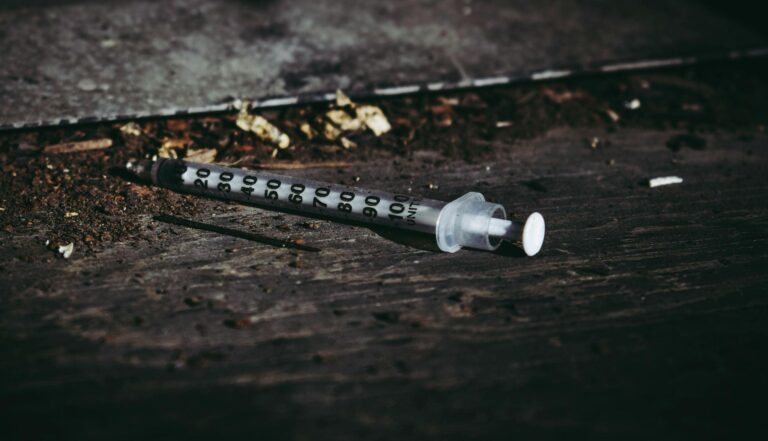The transformation my boyfriend undergoes when under the influence of alcohol is both puzzling and disconcerting. His usually composed demeanor gives way to an unpredictable volatility, challenging the dynamics of our relationship and complicating our communication. While I am aware that his intoxicated state is not a true reflection of his character, it’s impact on our relationship is nonetheless significant. How can one navigate such a complex dynamic, ensuring their own well-being and fostering effective communication? The exploration of this question may offer some insight.
Understanding Alcohol-Induced Personality Shifts
In the domain of personal relationships, understanding alcohol-induced personality shifts is essential, especially when these changes become a source of discomfort or conflict. Alcohol often brings underlying issues to the surface, altering relationship dynamics and causing emotional impact.
The first step towards managing this situation is acknowledging these shifts. It is vital to identify changes in behavior, communication style, emotional responses, and understanding where these shifts originate. This includes recognizing the difference between the sober and intoxicated self, and investigating the potential emotional or psychological issues that alcohol may be amplifying.
Addressing the emotional impact is equally important. Alcohol-induced personality shifts can cause feelings of confusion, frustration, and fear. Coping strategies, such as open communication, therapy, or seeking advice from professionals, can help mitigate these feelings.
Personal boundaries should also be established and respected. It is vital to protect oneself from potential harm while also supporting the individual dealing with alcohol-related issues.
Understanding the complexity of alcohol-induced personality shifts and implementing strategies to cope with them can lead to healthier relationship dynamics.
Identifying the Signs of Intoxication
Recognizing the signs of intoxication is a vital step in understanding your boyfriend’s behavior when he drinks. Behavioral changes are often the most noticeable indicators. He may exhibit a marked difference in speech, coordination, or reaction times, all tell-tale signs of the intoxication effects.
Additionally, he may become unusually quiet or overly boisterous, reflective of the emotional volatility often associated with alcohol consumption. These changes can quickly lead to relationship strain. The person you know and love may seem entirely different, causing confusion, worry, and tension.
It is important to remember that these changes are not reflective of your partner’s sober personality but are temporary effects of the alcohol. In managing this challenging situation, it is important to develop coping strategies.
These can include setting boundaries, practicing self-care, and seeking support from trusted friends or professionals. Remember, it’s not your responsibility to control or change your partner’s drinking habits. Your focus should be on understanding the situation, protecting your emotional health, and seeking help when needed.
Dealing With a Drunken Partner
Maneuvering the complexities of dealing with a drunken partner presents its unique challenges and demands a significant amount of emotional intelligence and patience. Employing effective communication strategies becomes essential in such circumstances.
It is vital to approach the conversation when both parties are sober, articulating concerns about their drinking behavior without resorting to blame.
The emotional impact on the sober partner should not be underestimated. Feelings of frustration, sadness, and even anger are normal and valid. These emotions can strain relationship boundaries, making it essential to establish clear expectations and consequences related to the partner’s drinking.
To navigate these turbulent waters, coping mechanisms come into play. These might include self-care routines, seeking solace in hobbies, or engaging in physical activities to mitigate stress.
It’s important to remember that while you can offer support, you cannot cure your partner’s alcohol problems.
Lastly, leveraging support networks can be incredibly beneficial. Friends and family can provide emotional aid, practical advice, and a much-needed perspective.
This interplay of strategies will help manage the situation, paving the way for possible solutions in the future.
Seeking Professional Help and Support
Acknowledging the gravity of the situation is a crucial step, but often, external professional help becomes a necessity.
Support groups are a valuable resource, providing a sense of community and understanding that can help alleviate feelings of isolation and despair. They offer a safe space where individuals can share their experiences, learn from others, and gain strength and encouragement.
Exploring therapy options is equally important. Cognitive-behavioral therapy, for instance, can equip individuals with effective coping mechanisms to manage triggers and cravings.
Family therapy can also help, ensuring that loved ones understand the nature of the problem and how they can support the recovery process.
Intervention strategies can be beneficial in cases where the person denies or downplays the gravity of their drinking problem.
Professional interventionists can guide the process, ensuring it is handled sensitively and effectively.
Finally, various recovery resources are available, including residential treatment centers and outpatient programs.
These provide structured environments conducive for recovery, offering medical supervision, counseling, and therapeutic activities.
Final Thoughts
Ultimately, alcohol-induced personality changes can pose significant challenges in relationships. It is essential to identify the signs of intoxication and devise coping strategies. Engaging in self-care, seeking professional help, and maintaining open communication lines during sober periods are important. Understanding these dynamics, it becomes possible to navigate such situations with empathy and knowledge, potentially leading to healthier interpersonal dynamics and overall wellbeing.
At Altitude Recovery, we’re committed to lifting you from the depths of substance use challenges to the heights of recovery and resilience. Our expert team provides personalized, evidence-based treatment services designed to support your distinct path towards healing. Reach out to us for the understanding and compassionate care you deserve on your journey to wellness.
Frequently Asked Questions
What Are the Long-Term Effects on Relationships With a Person Who Frequently Drinks?
Frequent alcohol consumption can drastically alter relationship dynamics, leading to emotional volatility, trust issues, and communication barriers.
These changes often result in a strained, unpredictable environment. The non-drinking partner may develop coping mechanisms to handle the instability, which could further complicate the relationship.
Consequently, excessive drinking can have profound, long-term effects on relationships, underscoring the necessity for intervention and potential rehabilitation.
Can Alcohol or Drug Abuse Influence the Development of Mental Health Disorders?
Yes, alcohol or drug abuse can greatly influence the development of mental health disorders.
Alcohol-induced behavior and substance abuse triggers may exacerbate existing mental health issues or lead to new ones. This can create a cycle of addiction and depression.
In addition, ineffective coping mechanisms can worsen the mental health impact.
As a result, understanding the intricate relationship between substance abuse and mental health is essential for effective treatment and prevention strategies.
How Can I Protect My Own Mental Health While Dealing With a Partners Addiction?
Protecting your mental health while dealing with a partner’s addiction involves several key steps.
To begin with, setting boundaries is essential to maintain your own well-being. Emotional detachment, while difficult, can also be useful.
Engage in self-care practices regularly and establish a solid support network. Learn effective coping strategies, such as therapy or mindfulness.
What Are Some Successful Strategies for Encouraging a Partner to Seek Treatment?
Encouraging a partner to seek treatment requires a blend of open communication, setting boundaries, and exploring motivations.
It’s essential to openly discuss the issue without judgment, emphasizing its impact on the relationship.
Establishing clear boundaries can underscore the seriousness of the situation.
Understanding their motivations can help tailor the approach.
Additionally, seeking professional support can provide guidance, and fostering empathy can help the partner recognize the need for change.
What Lifestyle Changes Can Support Recovery From Alcohol or Drug Abuse?
Lifestyle changes to support recovery from alcohol or drug abuse include joining support groups for mutual encouragement and understanding.
Developing healthy coping mechanisms and enhancing communication skills can foster emotional resilience.
Additionally, adopting a balanced diet, regular exercise, and adequate sleep can contribute to overall well-being.
Finally, understanding triggers and developing a relapse prevention plan can be critical in maintaining long-term sobriety.
These changes can greatly aid in recovery.





